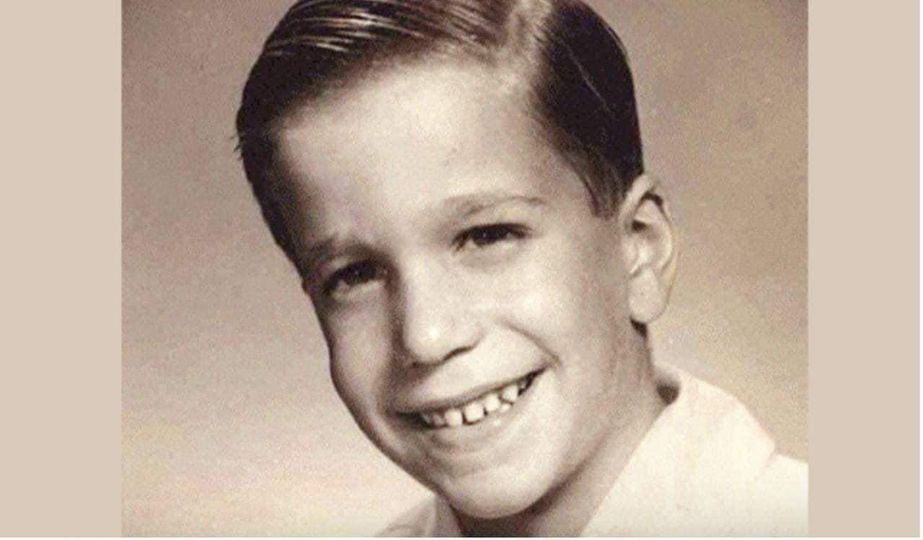Henry Winkler, adored by audiences for his iconic role as “The Fonz” on Happy Days, didn’t always have the smooth, cool persona his character projected on TV. In fact, his real-life story is one of perseverance, resilience, and overcoming significant obstacles that started in early childhood. Born to Jewish parents who fled Nazi Germany, Winkler faced challenges that most people never saw, struggles that were buried beneath the surface of his fame and success.

From a young age, Winkler struggled immensely in school. His difficulty with reading and learning was evident early on, yet in the 1950s, learning disabilities like dyslexia weren’t well understood or even recognized. His parents, unable to comprehend why their intelligent son struggled to read simple sentences, resorted to criticizing him. They called him “dumb” and used the harsh term “Dummo Hund,” which translates to “dumb dog” in German. This wasn’t limited to home—teachers and classmates often saw him as slow, labeling him as lazy or less capable. The negative comments and unfair treatment took a toll on his self-esteem, leaving him feeling inadequate and misunderstood.
Despite the emotional damage caused by these constant criticisms, Winkler remained determined to pursue his passion: acting. He knew he wanted to be a performer, and nothing—not even the voices telling him he wasn’t good enough—could stop him from chasing his dreams. He applied to 28 different colleges, and though most rejected him, he was finally accepted by two. Eventually, Winkler made his way to the esteemed Yale School of Drama, where he began to truly flourish. During an improvised Shakespearean monologue, his undeniable talent shone through, capturing the attention of those around him and setting the stage for a promising career.
Winkler’s big break came when he landed the role of Arthur “The Fonz” Fonzarelli on Happy Days. As the ultra-cool biker with a heart of gold, Winkler’s portrayal captured the hearts of millions. But behind the scenes, he was still struggling with his undiagnosed dyslexia, which impacted not only his ability to read but also his coordination. Learning his lines was an enormous challenge—he would memorize scripts by listening to others read them aloud. Despite the difficulty, he never let it affect his performance. He was charming, quick-witted, and used his humor to mask any struggles, always finding ways to embody the “essence of the character.”
At the height of his success, Winkler was offered the lead role in Grease, but he turned it down, fearing that taking another role as a leather-jacket-wearing character would pigeonhole him for the rest of his career. He wanted to prove that he could do more, that his talent extended beyond the confines of a single archetype.
It wasn’t until Winkler was 31 years old that he finally understood the true nature of his struggles. His stepson, Jed, was undergoing testing for dyslexia, and Winkler recognized the symptoms as being identical to his own lifelong challenges. The diagnosis was an eye-opening moment for him. For the first time, he realized that the issue wasn’t his intelligence—it was dyslexia, a learning disorder that had silently shaped his entire life. This revelation brought both clarity and relief, helping him make sense of the challenges he had faced for decades.
After Happy Days ended, Winkler continued to push himself into new creative territories. He took on a variety of roles in television and film, determined not to be limited by his past successes. He also co-created the MacGyver series, showcasing his talents not only in front of the camera but also behind it. Though transitioning from an iconic character like Fonzie to other roles wasn’t always easy, Winkler’s perseverance and adaptability helped him navigate these changes. His determination to succeed, despite the odds, became a defining aspect of his career.
Henry Winkler’s life story is much more than a tale of Hollywood success; it’s a testament to the power of resilience and determination. From a boy who was unfairly labeled “dumb” and told he would never amount to anything, Winkler rose to become one of the most beloved actors in America. His story reminds us that greatness is not defined by how easily things come to us but by how fiercely we fight for what we want, even when the world doubts us.
Today, Winkler uses his platform to inspire others, particularly children who face challenges similar to his own. He has written a series of children’s books featuring Hank Zipzer, a young boy with dyslexia. Through these stories, he offers encouragement and understanding, helping children see that their struggles do not define them, but rather, their response to those struggles does.
Henry Winkler’s journey—from the challenges of dyslexia to becoming an international icon—is an inspiring reminder that our limitations do not define our destiny. His story is proof that with determination, humor, and a relentless pursuit of one’s passion, it’s possible to turn perceived weaknesses into extraordinary strengths.





